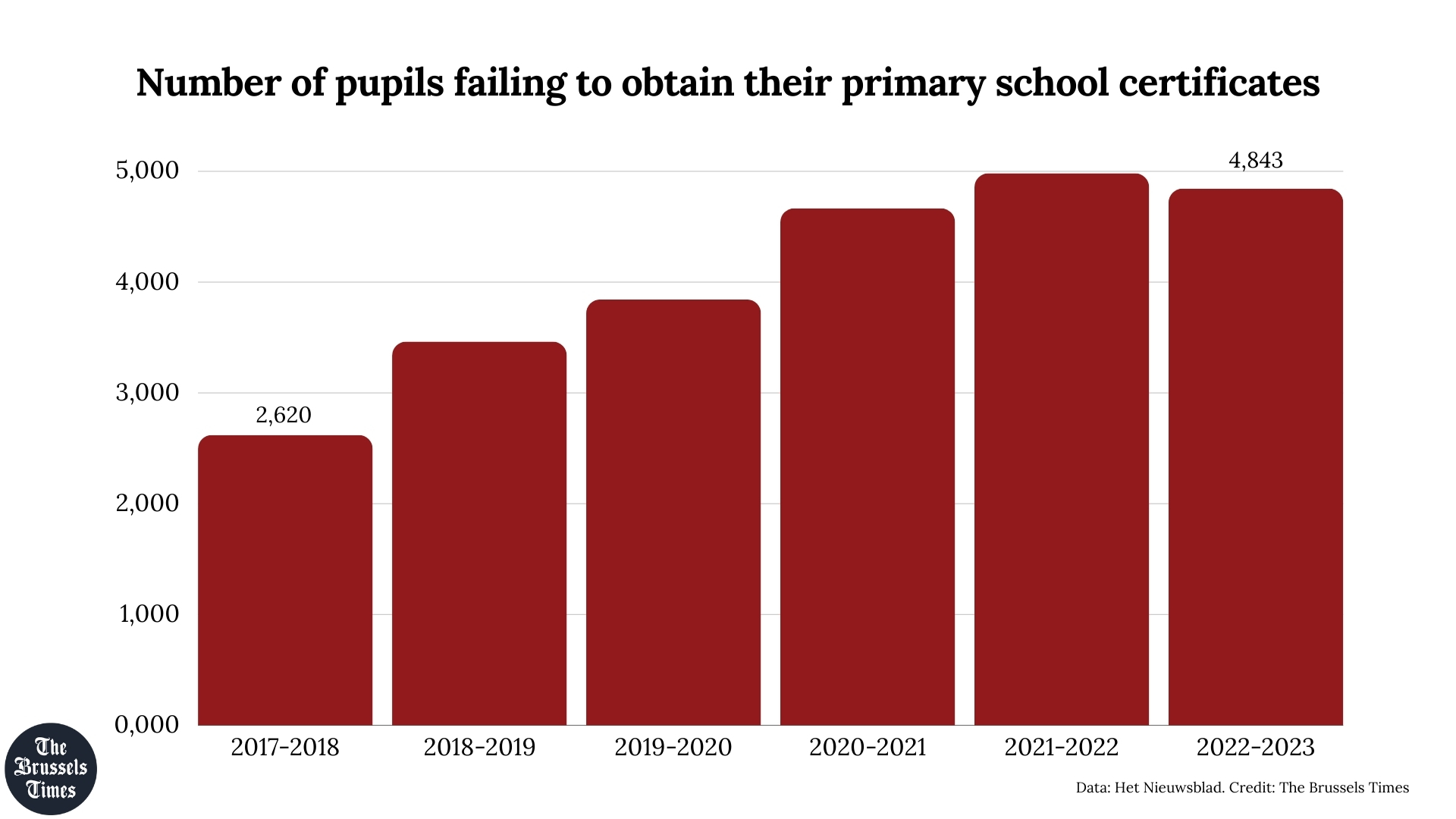More and more children are not achieving the necessary targets at the age of 12 to go from primary school to general secondary education (ASO). In one province, the situation is so bad that there are no spaces left in substitute classes.
The number of children in Flanders without a primary school diploma – officially named the certificate of primary education – has almost doubled in six years, Het Nieuwsblad reported on Friday. In 2023, more than 4,800 children did not obtain this diploma, compared to 2,600 in the 2017-2018 school year.
The class council decides who gets this diploma based on whether a pupil achieved the objectives in the curriculum. This can be done through exams but this method is not compulsory.

Flemish pupils failing their primary school classes.
Most children obtain the certificate after six years of primary school, but it can also be awarded to pupils who have not yet completed six years of primary education or who take longer to complete the trajectory (if they have to repeat a year, for example).
Those without a primary school diploma can still transfer to secondary education, but this transfer is rare. More often, they transition into the "first year B" which focuses on young people with learning difficulties. The subjects of Dutch and mathematics, the main subject matter of primary education, are repeated here. After this first year, school staff can either transfer them on to the first or second "year A" or to a second year of the B class.
Not reaching sixth form
There is also a growing group of students who go to 1B in the fourth or fifth grade (3.6% of all pupils in both grades). Children can enter this class as soon as they turn 12, so those who repeated another grade once or twice can in theory move to the B stream as early as the fourth year.
In the province of Antwerp, the situation has become so difficult that for many children there is simply no room left in the B stream classes due to high demand. Learning problems among children play a role, while there is less stimulation at home, with parents engaging less in reading comprehension or learning numbers.
The increasing number of pupils who do not speak Dutch at home was also pointed to as a reason. Experts have warned that this highlights that the current education system is not adapted to today's reality, adding that these children require much more intensive immersion in the school language.
Some have argued that, based on the figures, the proportion of children without a diploma should be even higher, but that schools are setting the bar lower, allowing more pupils without the necessary skills to pass.
Related News
- 'Banning out of fear': Pupils call on education to embrace AI
- Teacher shortage in Brussels sees hopeful evolution
While it is important to note that the "B classes" are not worth less, and in many cases are better tailored to the children that transfer to them – the curriculum is better adjusted to their skills and knowledge, relieving some of the school fatigue, while they receive more support from teachers – the schools themselves to struggle with this large influx in 1B.
The fact pupils transfer from fourth or fifth grade complicates matters for secondary schools as some can't read comprehensively. Experts have stressed that fixing the current heterogeneity in classes, which makes it difficult for teachers to meet all the needs, would allow children who are behind to catch up in time. However, this requires a lot of staff and resources, which are lacking in the Flemish education system.
Het Nieuwsblad's report is based on figures from the Flemish Government's Education Services Agency and did not include figures on the situation in French-speaking schools.

